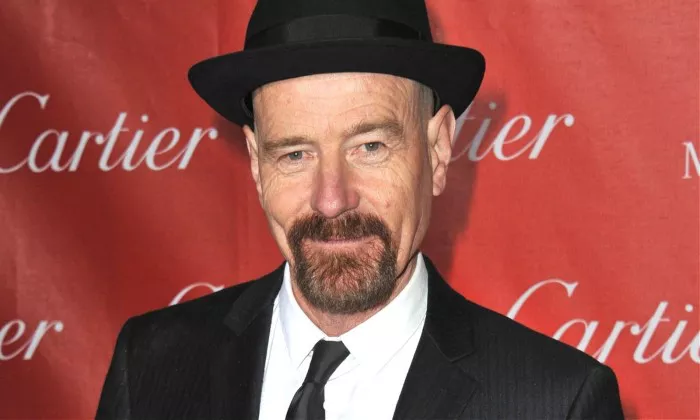Bryan Cranston is a versatile and acclaimed actor, best known for his transformative role as Walter White in the groundbreaking television series “Breaking Bad.” With a career spanning several decades, Cranston has established himself as a multifaceted performer across film, television, and theater, earning widespread acclaim for his exceptional range, nuanced performances, and dedication to his craft. This analysis will delve into Bryan Cranston’s career trajectory, notable roles, artistic influences, and impact on the entertainment industry.
Early Life and Career Beginnings
Bryan Lee Cranston was born on March 7, 1956, in Hollywood, California, to parents who were both aspiring actors. Growing up in a creative environment, Cranston developed an early interest in acting and storytelling. He attended Los Angeles Valley College and later studied theater at California State University, Northridge.
Cranston’s professional acting career began in the early 1980s with guest appearances on television shows such as “CHiPs,” “Hill Street Blues,” and “Murder, She Wrote.” He also gained recognition for his role as Dr. Tim Whatley on the popular sitcom “Seinfeld,” a character that showcased Cranston’s comedic talents and on-screen charisma.
Breakthrough Role: “Malcolm in the Middle”
In 2000, Bryan Cranston achieved widespread recognition and critical acclaim for his portrayal of Hal, the eccentric and lovable patriarch of the dysfunctional family on the hit sitcom “Malcolm in the Middle.” Cranston’s comedic timing, physicality, and ability to convey both humor and heartfelt emotion endeared him to audiences and earned him three Primetime Emmy Award nominations for Outstanding Supporting Actor in a Comedy Series.
Transformation with “Breaking Bad”
Bryan Cranston’s career reached new heights with his iconic role as Walter White in AMC’s “Breaking Bad,” created by Vince Gilligan. The series, which premiered in 2008, follows the transformation of Walter White from a mild-mannered high school chemistry teacher to a morally ambiguous drug kingpin known as “Heisenberg.” Cranston’s portrayal of Walter White was a tour de force, characterized by emotional depth, psychological complexity, and a mesmerizing on-screen presence.
Cranston’s transformative performance in “Breaking Bad” earned him widespread critical acclaim and numerous accolades, including four Primetime Emmy Awards for Outstanding Lead Actor in a Drama Series—an unprecedented achievement that solidified his status as one of television’s most respected actors.
Artistic Range and Versatility
Beyond his work in television, Bryan Cranston has demonstrated remarkable versatility across various genres and mediums. He has appeared in notable films such as “Argo,” directed by Ben Affleck, “Drive,” directed by Nicolas Winding Refn, and “Trumbo,” for which he received an Academy Award nomination for Best Actor.
Cranston’s foray into theater has also been met with critical acclaim. He made his Broadway debut in the play “A Doll’s House” in 1997 and went on to star in productions such as “All the Way,” portraying President Lyndon B. Johnson—a role that earned him a Tony Award for Best Actor in a Play.
Impact and Legacy
Bryan Cranston’s impact on the entertainment industry extends beyond his individual performances. His dedication to craft, commitment to character development, and willingness to take creative risks have inspired a new generation of actors and storytellers. Cranston’s ability to inhabit complex roles with authenticity and nuance has redefined the boundaries of dramatic storytelling, earning him admiration from peers and audiences alike.
Personal Philosophy and Influence
In addition to his artistic endeavors, Bryan Cranston is known for his introspective approach to acting and storytelling. He has spoken openly about the importance of empathy, vulnerability, and authenticity in the creative process, encouraging aspiring actors to embrace the full spectrum of human experience in their work.
Cranston’s legacy as an actor and storyteller continues to resonate with audiences worldwide. His enduring impact on film, television, and theater underscores the transformative power of storytelling and the enduring legacy of a dedicated artist committed to his craft.
Conclusion
In conclusion, Bryan Cranston is a consummate actor whose career has been defined by versatility, dedication, and transformative performances. From his breakout role in “Malcolm in the Middle” to his iconic portrayal of Walter White in “Breaking Bad,” Cranston has captivated audiences with his emotional depth, range, and ability to inhabit complex characters. His impact on the entertainment industry extends beyond individual roles, inspiring a new generation of actors and storytellers to embrace authenticity and vulnerability in their craft. Bryan Cranston’s legacy as an artist serves as a testament to the enduring power of storytelling and the transformative potential of the performing arts.
Related Topics:
Celebrity Introduction – Ken Watanabe
Wu Jing on Wolf Warrior 2’s Success and the Sequel
Ana de Armas: Beauty Throughout Hollywood

